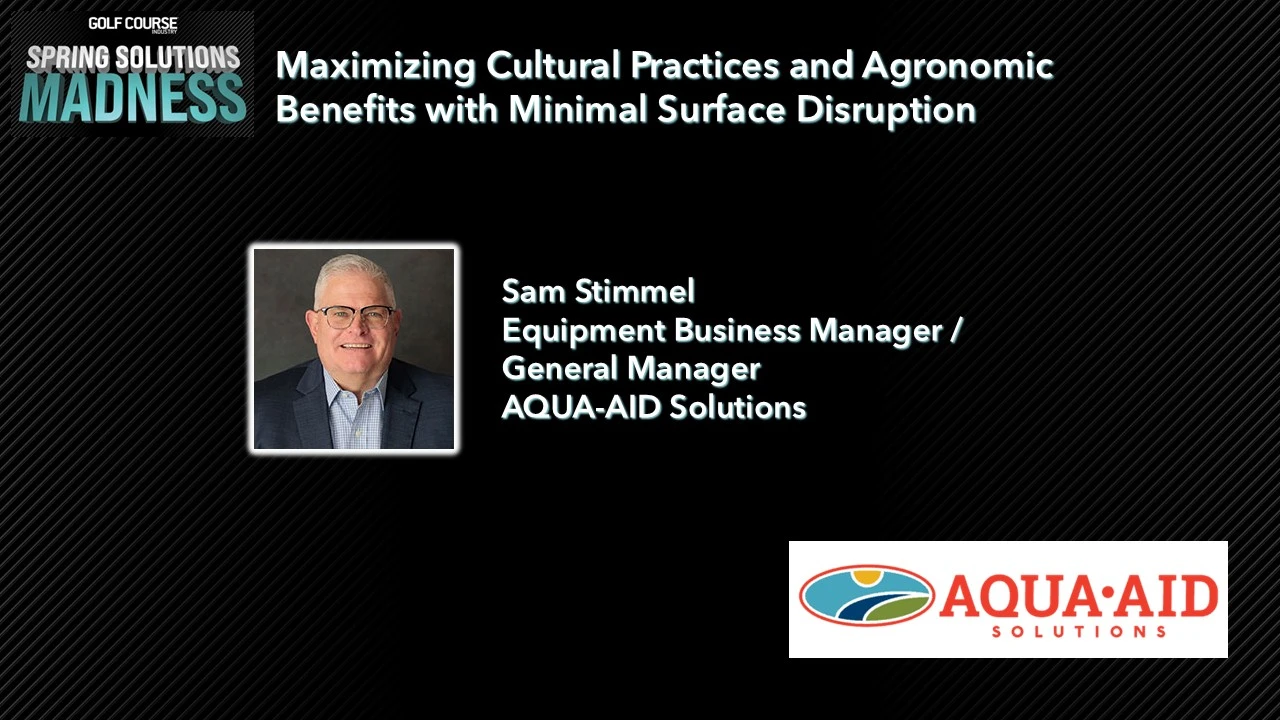
Appetizers are ordered and headed to the table, warm platters of yucca fries and fried calamari, but PJ Salter is up and headed to the dance floor.
Caribbean music loud enough to muffle conversation pounds under the tiki hut roof of Monty’s Raw Bar in the Coconut Grove neighborhood of Miami, within sight of Biscayne Bay, and Salter does love to dance. More important, his daughters love to dance, and they want to dance, and they want him to dance, so he dances.
Salter is not a bad dancer and, on the brink of 40, with all his joints and ligaments still in working order, he understands that the key to dancing is to move without inhibition. He is the kind of person who dances like nobody is watching. He dances through the end of the first song and into another.
Salter is a different person at 39 than he was at 29, than he was at 19, than he was at 9. He might not have danced back then (though he probably would have). He certainly was not in charge of the turf at an esteemed private golf club — he returned to Riviera Country Club in Coral Gables, where he had previously worked nearly four years as an assistant superintendent, in February 2016, this time as the director of agronomy. He was not a father. A third song begins. His form holds up.
Salter and his wife, Lisa Marie Jess, have experienced more, evolved more, these last five years than some people will in a lifetime. They have cleared hurdle after challenge after obstacle. There are more to come. They seem as prepared as you can be.
Salter returns to the table in time for entrees a little sweatier than when he departed. No different than a humid morning out on the course.

Morning temperatures are climbing high into the 80s but Salter is not sweating — not yet, at least — when he pulls around the front of the new Riviera clubhouse into the parking lot. He is wearing an aqua golf shirt, purple socks festooned with mushrooms and Jordan Brand golf shoes. When he was just starting out, he would occasionally wear shorts to the course. One mentor mentioned that pants are more professional and his work shorts disappeared. Dress for the job you want.
“It’s hot,” he says, “but it’s just the humidity. It doesn’t seem to ever get above 94 but it’s 94 and humid every day.” He checks his phone. The Weather.com thermometer reads 94. “The thing about the heat down here,” he continues, “is you get to some point every fall, typically in October, where the edge is gone in the morning. It’s 72, the humidity isn’t too bad, and that lasts through March maybe. And then it changes back and you’re belly sweating through your shirt at 7 a.m. because it never gets much below 80 at night.
“In Michigan, there are plenty of nights when it gets into the 60s. But you get used to it, and the tradeoff is I have to put a jacket on when it gets below 60 now.”
A quick professional biography: As he just mentioned, Salter is a Michigan native and a Michigan State University graduate, with a degree in crop and soil sciences framed on one wall of the stuffed office he shares with his three managers. He graduated in 2005 and headed south on Christmas Day to start his professional career as the second assistant at the Golf Club of the Everglades under Jason Gerlach. A year later, he moved to Riviera as an assistant under Eric von Hofen. In 2010, less than five years removed from East Lansing, he landed the superintendent position at Ocean Reef Club in Key Largo, working under director of agronomy Juan Gutierrez. He considers all three of them mentors and has incorporated many of the lessons and policies they passed along. He worked at Ocean Reef Club for four years, then nearly two years as the superintendent at Riomar Country Club in Vero Beach, where he oversaw an extensive Tom Fazio II renovation. Everything lined up in 2016 for a return to Riviera.
Five moves in a little more than a decade. A dizzying ascent, especially with a proposal, a wedding, the birth of one child and the imminent arrival of two more mixed in.
At Riviera, an early Donald Ross design approaching its centennial, Salter oversees a veteran maintenance crew that normally includes 12 full-timers and two mechanics in addition to Salter and three managers — superintendent Drew Nottenkamper, first assistant Mike Smith and second assistant Mike Heinz.
Nottenkamper arrived first, in January 2017, from Desert Mountain Club in Scottsdale, Arizona. A California native, he tends to be the most outwardly relaxed of the four — his resting heart rate during an afternoon check of irrigation stations was 58 bpm — and is arguably the best golfer after a college career at San Jose State University.
A high school baseball player who originally wanted to work on the diamond, Smith followed in 2018, his career path altered after he realized there are far more golf courses than professional ballparks. He likes to joke that after a handful of years in Florida, he is confident at least in his ability to grow grass. “I don’t think I’d kill anything,” he says.
Heinz has the longest professional relationship with Salter — they worked together at Ocean Reef starting nearly decade ago — but arrived most recently. He loves baseball, previously interning for the Baltimore Orioles and head groundskeeper Nicole Sherry, and would love to teach the game to young players. For now, he is leading Riviera’s efforts to gain Audubon Cooperative Sanctuary certification.
The quartet tends to both complement and compliment one another.

“Drew knows what needs to be done, he understands priorities very well, he knows how to get across to the guys what’s important and he’s really good at managing the crew,” Heinz says. “I’ve tried to learn crew management from him, because I’m not a natural manager. Smitty will tell you he’s an over-communicator. He’s like PJ: he’s repetitive and he wants to make sure you get what’s going on. And I’m there for where I’m needed. There’s a role to play here and I’m going to play it to the best of my ability. That’s how you’re successful.”
“I think we all bring something different to the table but it all jells real well,” Smith says. “I don’t think I’ve seen any of us have an argument.” They joke around but mentioned in separate conversations that they have never raised their voices with each other. “I’ve heard stories about people yelling, fighting with mechanics. Just be positive around people.”
“I enjoy this crew,” Nottenkamper says. “I enjoy managing the guys. Delegating tasks is definitely something I’ve gotten better at. … Just because you want to do something doesn’t mean that you should. It’s not always beneficial to what we’re trying to accomplish at that time.”
Salter brings all three with him to green committee meetings each month, to gain more confidence and comfort in boardrooms, to master different parts of the job. He also makes sure each of them calls the shots during the weekend at least once a month. These are things he learned on the way up and things he wants to pass along.
“What Eric (von Hofen) was trying to explain to us was that it’s not about how you get better at your weaknesses from a management standpoint, it’s how you fill out your weaknesses,” Salter says. “How do you recruit guys who are good at the things you’re not necessarily good at so you can put more effort into the things you excel at?”
The results are obvious: Members have approved more than $10 million in renovations over the last six years, the undulating TifEagle greens and Celebration Bermudagrass tees and fairways shine, and all three managers seem poised for career climbs.
“I got into golf course maintenance because I really like to work hard, I like to be outside and I wanted to play free golf,” Salter says. “And as it developed into a career, I started to appreciate the people management and I started to understand it’s the people and not my college education that produces results.”
When he started, Salter was more likely to opt for negative reinforcement, telling crew members what they were doing wrong rather than what they were doing right. After years of learning and years of teaching, he now opts for a hello and a “how are you?” to start most conversations. He wants to humanize changing cups, pulling weeds, setting up ropes and stakes, remembering we all are humans. “If I can do my part to keep the guys happy,” he says, “they are going to do a much better job on the golf course. I really learned to appreciate that part of it.”
For as much as Salter has matured on the course, he is a far more evolved person off it today than he was in 2005 or even 2015.
He and Lisa welcomed their oldest daughters, Tallulah, in 2012, then twins Colette and Persephone in 2017, just a year after Salter returned to Riviera and a month after he hired Nottenkamper. Tallulah and Colette were born without any complications, but Persephone was born with Axenfeld-Reiger Syndrome — a genetic condition that involves the eyes, ears and central nervous system — with Peter’s Anomaly. The condition is present in fewer than 500 babies born globally every year.
When the twins arrived, doctors were initially unsure of how to diagnose Persephone, nicknamed Persi. She shuttled between hospitals, traveled out of state, and met specialist after specialist. She endured 10 surgeries on her eyes before her first birthday, then a pair of open-heart surgeries before her second. The last of her 12 total surgeries was the result of a microbacterium infection in her chest cavity that has a 60 percent mortality rate.
The two years of medical struggles for Persi, of trying to find answers and care for her, sent Salter and Lisa down so many rabbit holes.
“Before you enter into the rare syndrome world, you think everything has a diagnosis, a clear path — this happened because of this, this happened because of that — and that the medical world is filled with straight lines,” Lisa says. “But entering the rare syndrome world, you have to be fine with, ‘Well, we don’t even know exactly what that is.’ You kind of give up all your understanding of the medical world because sometimes the answer is, ‘We don’t know. We don’t know how this is going to turn out and we don’t know what direction this is going to go.’
“And that’s just how it is. There’s just not the research or the understanding.”
The Salters relied on their Catholic faith throughout those years. “I’m a very faithful person, but I don’t think that God chose me because I was some superhuman person,” Lisa says. “God helps you get through the challenges you’re presented but I don’t think He awards challenges based on your worthiness.”

Persi and Colette are 4 now and attend the same preschool. Persi has limited vision but she had enough for long enough that her brain interpreted sight at age-appropriate levels that she is as developed if not more so than most children her age. The plan is for the twins to be in the same kindergarten class next year and for Persi to eventually be her school’s first visually-impaired graduate. Learning Braille is high on her to-do list.
“She’s extremely determined and strong-willed and fearless, which can be difficult because she’s opinionated. You cannot make her do something that she does not want to do,” Lisa says. “She likes to do things herself. She likes to do things that everybody else is doing. She’s also very sweet, and she’s extremely funny. She speaks well beyond her years, and she has a very funny sense of humor.”
“All we know is the world as typically-sighted people,” Salter says. “We asked ourselves, ‘How is this going to hinder her world?’ The reality is she’s opened our eyes to what’s important in the world and how to experience it. She’s always had this outstanding spirit.”
She is also the inspiration for the Persephone Mae Foundation, a 501(c)(3) nonprofit designed to help other families with children born with rare conditions or visual impairment. The foundation has raised more than $175,000 thanks to annual golf outings — the next is October 14 at Trump National Doral Miami — along with donations and merchandise sales. Lisa has plans to launch an auction.
“It’s an enormous amount of work,” she says, “but I’ll get an email back from someone: ‘Oh my gosh, you made my day, we’re crying over here,’ and that’s worth it. I have so many plans for the foundation in the future and I would have liked to have grown it faster,” — the COVID-19 pandemic slowed the process as it slowed so much of life the last two years — “but if we can touch 12 families a year and they feel celebrated, if they get something special for their child, that’s still important.
“The rare syndrome world is hard to understand unless you’re in it. Every person is a different person.”
Salter is behind the wheel of a golf car, checking in on a handful of holes on a Wednesday afternoon. The car never tops 15 mph but he keeps the windshield clipped in place. “I have to keep the windshield up so my hair doesn’t get messed up when I go into the pro shop,” he says with a laugh.
“Is that really why you do it?” I ask.
“That’s why I do it,” he says, laughing harder now. “You’ll probably put that in the story right with the Jordans.”
He steps out for a couple minutes to walk around a green, then climbs back in. “Everything has gotten so stark,” he says, “you can’t have any personality.” He pauses for a beat and laughs again. “Probably why I do so well.”
“You think so?” I ask him.
“No,” he says immediately. “No.” He pauses for another beat. “I don’t know. Probably hard work and trying to treat people with respect, I think that’s what it really comes down to. Realizing that you can’t treat every situation the exact same.”
Years ago, he says, before the maturation of middle age, before fatherhood, he was riding around, checking setup, and he spotted a 4-year-old girl climbing out of a bunker, the same age then that Colette and Persi are now. She was playing and laughing. He had no idea who she was or why she was there. He asked her her name and whether she was lost. He told her she wasn’t safe in the bunkers, that she could be hit by a ball, and that she needed to leave. The girl was the daughter of a friend of one of Salter’s superiors. Her father worked in a restaurant and couldn’t bring her to Take Our Daughters and Sons to Work Day, so she wound up on the course. After bringing her back to the maintenance facility, Salter explained the situation to his direct superior, who delivered a verbal lashing, telling Salter that the girl had every right to be at the club and on the course. Nothing prepared Salter for the moment but he remained calm and listened. Then he maintained that the girl should not be on the course. His superior walked out and returned a few minutes later with the girl, who was in tears.
With emotions boiling and pouring, Salter was finally able to relay the situation to his other superior, who was out that day and who delivered the same message, albeit in a little different manner.
“‘Listen, listen,’” he remembers hearing. “‘Just tell him to come back. He can stay on the clock, he can give the girl a tour of the tennis facility, a tour of the clubhouse. Just let her ride around with him the rest of the day and we’ll be good.’
“And I was like, ‘Shoot. Why didn’t I think of that?’”
There is no manual for how to live your life. As soon as you think you know how to teach, how to parent, how to love, you experience something new, and you learn, and you move forward. You get a little smarter, you get a little wiser. You stay curious. Over time, life makes a little more sense. Never total sense, just a little more. You never do figure out everything.
“Some things you get right just through intuition,” Salter says. “Other things you learn the hard way.”
Every person is a different person. Be curious, not judgmental. Wear pants, maybe. And dance.

Explore the September 2021 Issue
Check out more from this issue and find your next story to read.
Latest from Golf Course Industry
- Tartan Talks 105: Nathan Crace and Todd Quitno
- Disease Discussion 24: Let the turf talk to you
- From the publisher’s pen: Foggy intrigue
- USGA releases Water Conservation Playbook
- Vilamoura Golf courses awarded GEO Certified status
- GCSAA’s Health in Action 5K/2K reaches fundraising goal
- Landscapes Golf Management to participate in data analyzation initiative
- Reel Turf Techs: Carl Michael





